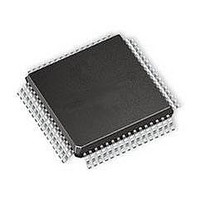SI3220-BQ Silicon Laboratories Inc, SI3220-BQ Datasheet - Page 83

SI3220-BQ
Manufacturer Part Number
SI3220-BQ
Description
IC SLIC/CODEC DUAL-CH 64TQFP
Manufacturer
Silicon Laboratories Inc
Series
ProSLIC®r
Specifications of SI3220-BQ
Package / Case
*
Function
Subscriber Line Interface Concept (SLIC), CODEC
Interface
GCI, PCM, SPI
Number Of Circuits
2
Voltage - Supply
3.3V, 5V
Current - Supply
65mA
Power (watts)
941mW
Operating Temperature
-40°C ~ 85°C
Mounting Type
Surface Mount
Includes
Battery Switching, BORSCHT Functions, DTMF Generation and Decoding, FSK Tone Generation, Modem and Fax Tone Detection
Product
Telecom
Supply Voltage (min)
3.13 V
Supply Current
22 mA
Maximum Operating Temperature
+ 85 C
Minimum Operating Temperature
- 40 C
Mounting Style
SMD/SMT
Number Of Channels
2
Lead Free Status / RoHS Status
Contains lead / RoHS non-compliant
Available stocks
Company
Part Number
Manufacturer
Quantity
Price
Company:
Part Number:
SI3220-BQ
Manufacturer:
TONTEK
Quantity:
12 000
Company:
Part Number:
SI3220-BQ
Manufacturer:
Silicon Laboratories Inc
Quantity:
10 000
When the Dual ProSLIC is set to GCI mode at
initialization, the default setting ignores the downstream
SC channel byte and allows linefeed state commands to
be directed through the monitor channel. This default
configuration is enabled by initializing the GCILINE bit
of the PCMMODE register to 0, which prevents the Dual
ProSLIC from transitioning between linefeed operating
states due to invalid data that may exist within the
downstream SC channel byte. To transfer direct linefeed
control to the downstream SC channel, the user must
set the GCILINE bit to 1. Once the GCILINE bit has
been set, the Dual ProSLIC follows the commands that
are contained in the downstream SC channel byte as
described in Figure 62.
The Dual ProSLIC architecture also enables automatic
transitions between linefeed operating states to reduce
the amount of interaction required between the host
processor and the Dual ProSLIC. When a GCI bus is
implemented, the user must ensure that these
automatic linefeed state transitions are consistent with
the
downstream SC channel byte.
In normal operation these automatic linefeed state
transitions are accompanied by the setting of a
threshold detection flag and an interrupt bit, if enabled.
linefeed
commands
Figure 63. Protocol for Receiving C/I Bits in the Dual ProSLIC
Receive New
Receive New
C/I Code
Store in S
C/I Code
= P?
= S?
= P?
No
No
No
contained
Yes
Yes
Yes
within
Preliminary Rev. 0.91
the
With New C/I Bits
Load C/I Register
P: C/I Primary Register Contents
S: C/I Secondary Register Contents
To allow the Dual ProSLIC to automatically detect the
appropriate
transitions, the downstream SC channel byte should be
updated accordingly once the interrupt bit is read from
the upstream SC channel byte. To disable the automatic
transitions, the user must set the GCILINE bit. Enabling
this Manual mode requires the host processor to read
the upstream SC channel information and provide the
appropriate downstream SC channel byte command to
program the correct linefeed state.
Table 45
transitions and their associated registers that cause the
transition.
The transition to the OPEN state stemming from power
alarm detection is intended to protect the Dual ProSLIC
circuit in the event that too much power is dissipated in
the Si3200 LFIC. This alarm is typically due to a fault in
the application circuit or on the subscriber loop, but can
be caused by intermittent power spikes depending on
the threshold to which the alarm is set. The user can re-
initialize the linefeed operating state that was in effect
just prior to the power alarm by toggling the downstream
SC channel byte to the OPEN state for two consecutive
cycles and then resetting the downstream SC channel
byte to the intended linefeed state for two consecutive
presents
thresholds
the
Si3220/Si3225
and
automatic
control
linefeed
the
linefeed
state
83












